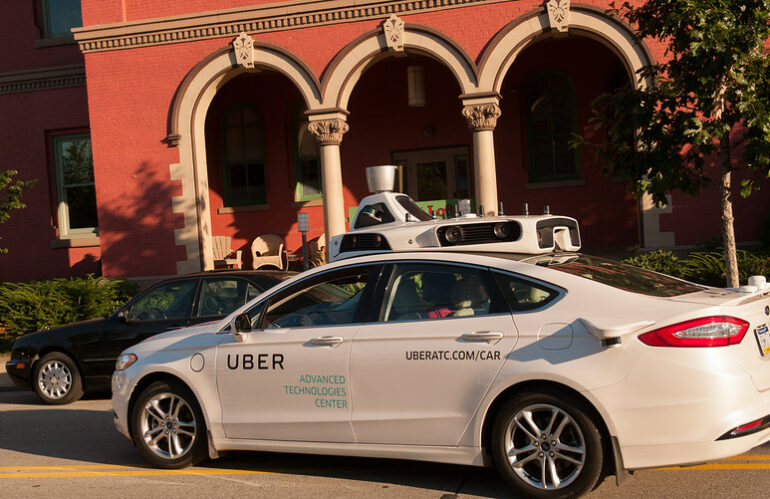Yes, they will and the reason is going to be their software. They are not scalable in the software that matters. Artificial Intelligence for cars.
What does that mean? You can read about that here. If you don’t have a good grasp of the current state of RoboTaxi progress, read this first.
But it will be “impossible” for them to scale to production.
That’s according to Trip Chowdhry of Global Equities Research, who just attended talks on autonomous driving research at Volvo Concept Lab.
There is zero overlap, he says, between autonomous driving, navigation systems and ride-sharing.
Software
There are many software systems required to build an Intelligent Robot that can drive, pickup people up and drop people off at the destination they choose. Uber and Lyft control just one of them.
And that software has nothing to do with the actual car or driving.
Chowdhry shows the architectural diagram of Volvo’s Polestar autonomous platform, and asks how many source code trees are there—over 1,000—and how many would be under the direct control of Uber UBER, -0.15% and Lyft LYFT, -0.14% —not more than 20.
By contrast, Tesla will be successful since it is the only company with a fully integrated single source code, from sensor to vehicle control, Chowdhry says.
Tesla will also have a Rideshare app called the Tesla Network. Actually, the easiest software to write and manage. They are the only entity building cars, sensors, computers, software all with one purpose and controlled by one company.
DIDI
Is also a competitor in this space . They have money, technology, data, and regulation on their side. Just not the software.
After its initial pilot launch in Shanghai, Didi will look to expand its offerings to Beijing and Shenzhen as well, with hopes to be live in all three cities by 2020.
They have the same issues the Lyft and Uber have. They do not control all the software, cars, AI or basically anything but their own app. It will not stop them from trying.
